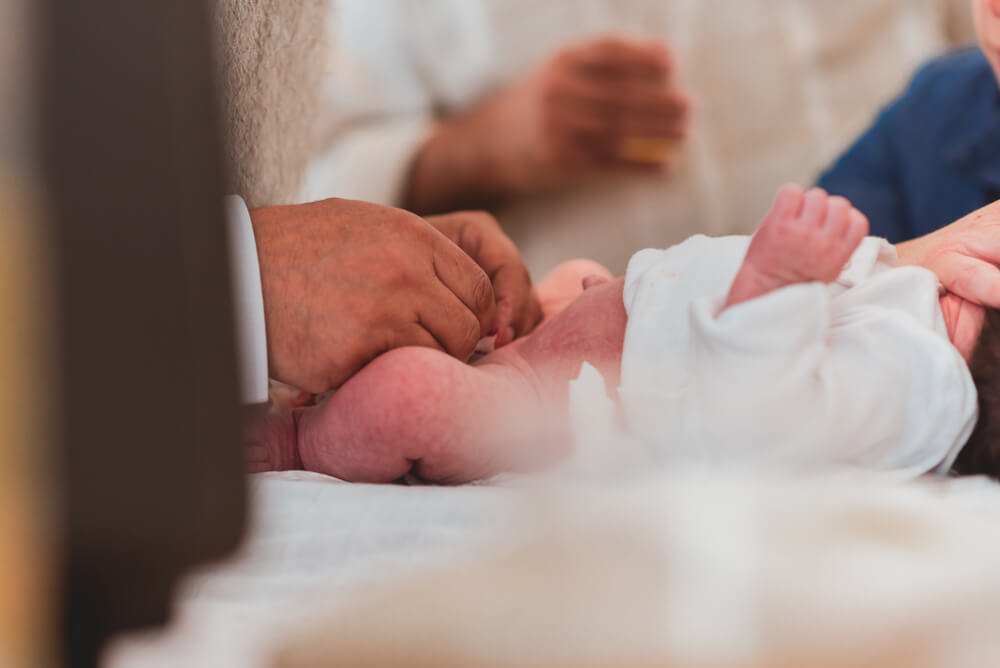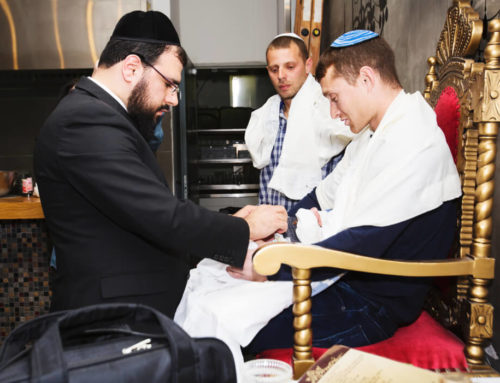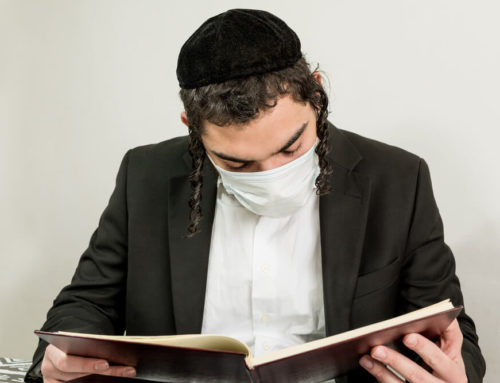As with any invasive medical procedure, ensuring the comfort of the patient is exceptionally important. However, during the bris, many mohels are asked by parents if they use anesthesia for circumcision? It’s a question that doctors in the NICU and post-natal wards often encounter as well. Ultimately, the answer is yes, doctors and mohels apply local anesthesia for a bris or circumcision. However, the type of anesthesia they use and the overall process required to successfully circumcise an infant is very different when performed by a mohel than it is in a hospital. Ultimately, parents need to understand how it is applied when making an educated choice for their son’s circumcision.
Do They Use Anesthesia For Circumcision?

Doctors in both a hospital setting and your local mohel, use anesthetics during the circumcision process. However, significant differences in the circumcision process lead many parents to choose to have the procedure performed by a mohel in Tamarac Florida, instead of having the procedure performed 24 hours after birth.
Anesthesia for a bris is much less invasive than the anesthesia used in hospital circumcisions as staff uses numbing cream for babies instead of the injections used in the hospital. Doctors will often explain that the anesthesia they use is relatively harmless and keeps the baby from feeling any pain. Often, this is the parents’ primary concern, and once they have an answer, they feel they no longer have to worry about their child.
However, many parents are unaware of the exact process that takes place during a circumcision performed in a hospital setting. A common misconception is that a bris actually takes longer than a traditional hospital-based circumcision due to the ceremonial practices in the procedure. Your mohel in Tamarac, Florida, can explain the process to you. In theory, this makes sense. There are hundreds of doctors in the local hospital prepared to perform the procedure, and they often do this every day, so it must be fairly quick.
Coming as a surprise to many parents, however, the actual medical procedure of circumcision performed by a mohel during a bris often takes less than a minute to completely perform. As a bonus, anesthesia for a bris is a quick and painless process. When having a circumcision performed in a hospital, infants undergo anywhere from 10 to 40 minutes of operation. Ultimately, doctors and mohels perform this operation in different ways and under different circumstances, which changes the basic time it takes to complete.
Some parents naturally assume that there are anesthetics involved due to the nature of the operation itself. It’s important to remember, though, that using anesthesia was not always the case. In fact, prior to the early 1980s, the medical community held the belief that infants did not feel pain and, thus, anesthesia would not need to be applied.
In more recent years, however, research suggests that infants do experience pain during the procedure. Research about the reactions of infants who underwent anesthesia for a bris or traditional circumcision showed that infants remained calmer, had steadier heart rates and breathing, cried less, and were less fussy after their operations.
Present medical practice routinely uses anesthesia for the circumcision process, but hospitals often do not use numbing cream for babies.
How a Mohel Uses Anesthesia for a Bris

One of the first questions you’ll ask your mohel will likely be if they’ll use anesthesia for circumcision, and, if so, what kind? Mohels understand these concerns, and many have no problem spending time comforting parents and ensuring that they understand what the process will be like for their infants. The mohels explain the numbing cream for babies they use, as well as any potential side effects.
Additionally, parents should remember that the application of anesthesia is different during these processes because the processes vary greatly. Doctors are often less likely to explain the process to the parents. Plus, parents are often not able to be with their child in the operating room. During a bris, and even when the anesthesia kicks in, parents stay beside their son to comfort him and to carefully watch the process.
Many parents will assume that the hospital uses numbing creams as doctors may warn them of the negative side effects of injected anesthesia during pregnancy. However, due to the length of the process, hospitals must use injections as the base of the penis to numb the area before they operate.
Your mohel in Tamarac Florida, however, follows the traditional practices of anesthesia for a bris. This means applying a topical numbing cream for babies to the penis several minutes before the operation. Once they have applied the cream, they will check to make sure the infant is comfortable before they start the procedure. Plus, the parents are there to help comfort the baby throughout the process. Additional numbing cream is applied after the procedure is complete as well and a topical ointment may be sent home with the parents for additional comfort.
The Pros of Numbing Cream for Babies
There are several reasons parents should choose numbing cream for babies over anesthetic injections. These reasons include:
- Injections are often more painful than the actual circumcision process
- Injections may cause bleeding hematoma formation
- Topical numbing cream is as effective at numbing the area as injections
- Numbing cream for babies does not increase the babies’ heart rates or lower their oxygen levels
- Babies often cry less and are reportedly more comfortable when they arrive home
Because it is as effective and has fewer negative side effects for the child, this cream is the standard anesthesia for a bris. Your mohel may send families home with additional numbing cream to help the healing process.
If you have questions about the bris process or feel that a topical numbing solution would be right for your child, we encourage you to reach out to us today for additional information. For more than 2 decades, Dr. Andrew Krinsky has been religiously ordained and certified as a mohel and has nothing but an exceptional track record of happy families. As a very skilled and experienced medical professional, you can count on an exceptional and pain-free procedure for your son. Get in touch with us today!







